#wish they fought in the dark with their glowy swords more often
Text


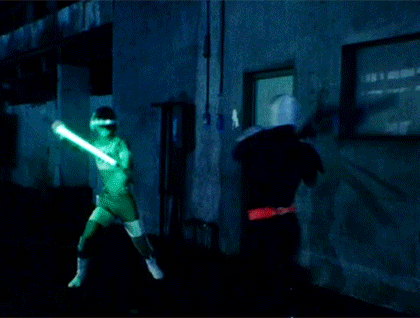
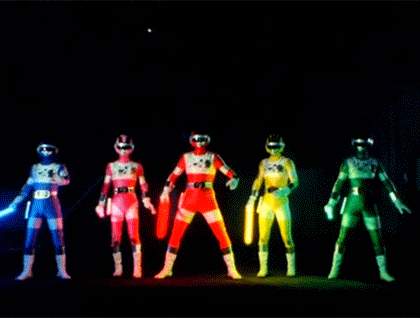
❤️💚💙💛🩷
#bioman#i'm an absolute fucking sucker for the glowy swords#wish they fought in the dark with their glowy swords more often#like i understand WHY the swords dont glow all the time but dammit it would be so cool if they did#give me the glowy swords P L E A S E#aesthetically bioman is 100% exactly what i love and want from a sentai#i love the suits i love the helmets i love the weapons i love bio robo oh my god do i love bio robo#a lot of flashing lights tho but thats an issue thats pretty common in older shows and not unique to bioman so no points deducted 👌👌👌#gif post tag
85 notes
·
View notes
Text
The Legend of Zelda: Oh Yeah, There Are Horses In This Game

(My long-winded thoughts about the masterful Breath of the Wild)
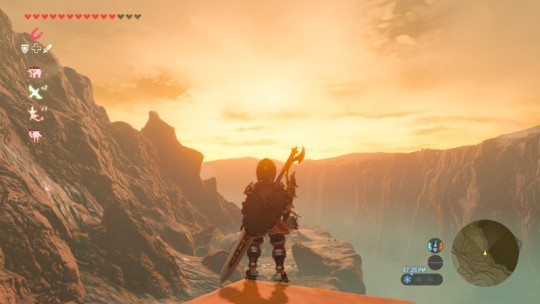
So I'm just now coming off Breath of the Wild after buying the game about...4 weeks ago? I beat the core game (all Divine Beasts, and Hyrule Castle) in a week. I continued spending the vast majority of my free time on the game to tackle the immense amount of remaining content it had to offer.
And now, somewhere in the area of 90-ish hours of playtime later, having found and completed all 120 Shrines, found all of Link's memories, I'm finally ready to put the game aside (screw the Korok seeds, by the way). But I do want to talk about it and about the experience it's been. There will be spoilers ahead.
I must also note that, before acquiring Breath of the Wild, I replayed The Wind Waker and Skyward Sword; attempting a 3-heart and 6-heart run through them respectively*. As such, I had a lot of thoughts of how Breath of the Wild compares with those games (and other Zelda titles), how it differs, how it pays tribute, and how it completely turns conventions on their head.
*3-heart run through Wind Waker was a piece of cake. 6-heart run through Skyward Sword (note that you start with 6, so you can't do a 3-heart run) was significantly more challenging, and when I accidentally completed a heart container, I just continued playing. So it became a 7-heart run.
So to be blunt, Breath of the Wild is a great game. Few people will argue that. It's been highly revered since it's still-recent release. But then, so was Skyward Sword for which the general consensus seemed to quickly 180 on. I don't expect that to happen with Breath of the Wild. The game's reception is very well-justified and its positive qualities I think will prove to be timeless.
I don't really intend this to be a review, but I will take a quick aside here to nitpick what I don't like about the game. Probably the most controversial mechanic is the weapon durability. This is something I don't feel strongly about but I do understand where others are coming from. During your time spent on the Great Plateau, all your available arsenal is so fragile that it does become a bit tedious to have to constantly scour around for a new weapon. However, this problem basically vanishes once you finish the starting area and have access to the meat of the game. After leaving the Plateau, weapon durability so rarely matters. Far more often than weapons breaking, I was dropping weapons willingly to make room for others, even after several inventory upgrades.
Additionally, all the weapons you find in the overworld respawn. I don't think any weapon you find is permanently gone once it breaks. Chests in the Shrines, for instance, remain empty, but the Shrines never give you unique weapons. And the unique weapons you get after completing each of the Divine Beasts can all be remade by one of the respective locals.
Anyway, my condensed thoughts on the weapon durability system is that it is very temporarily a very minor annoyance. I don't think the game needed it, but I don't think it's a serious hindrance either.
I'm not super thrilled with how the game handles its soundtrack. I get that it was a conscious choice to go with minimal music in order to emphasize the “atmospheric” feel, but I did find myself often wishing for some more robust tracks to accompany my quest.

Da naaa nana naaa da naa nana na naaaa
The controls took a lot of adjusting to. Not only are they not mapped like any previous Zelda game, they also aren't mapped like any of the similar-genre games that Breath of the Wild takes many cues from (e.g. Dark Souls). But I think my biggest challenge here was a purely personal one: In my earliest hours, I frequently tried to use R to open the paraglider because I was so accustomed to having the Deku Leaf set to R in Wind Waker HD. Oh, which reminds me, I do not own a Switch. I was playing the Wii U version of Breath of the Wild.
Speaking of hardware, this might be the only Zelda game which is clearly more than the systems it was built for can really handle. While the updates have improved performance, there are still several obvious framerate drops. Kakariko Village has been the worst offender in my experience. Others have cited the game near-freezing when fighting Moblins and I only recently experienced this for the first time strangely enough, despite having fought Moblins countless times before.
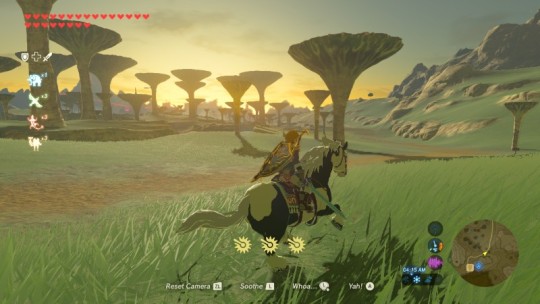
A mechanic I find odd is how the stables work. OK, so you have to tame wild horses, and then you can register them at a stable. And OK, you can whistle to your horse to call it over, but only up to a certain distance. And alright, you can board a horse at the stable, and then take it out at another stable. Wait, what?
This is just so...strange. It seems like the intention was to set up a system to encourage you to tame as many horses as you can in all of the different locations so you always have the convenience of taking one out but...then you can just warp horses from any stable to any other stable. So as soon as you have 2 horses, you can just rotate them however you see fit and the whole system is trivialized. After my first 2 horses, the only other horse I ever registered was the Giant Horse; and just because having it tamed was the result of a sidequest. I tried to register the Lord of the Mountain, but the guy at the stable said something about curses, so I'm guessing you can't do that.
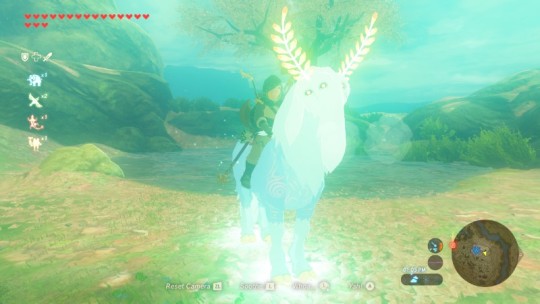
A sad day for glowy, 4-eyed horse-bunny-things everywhere.
To be clear, this didn't negatively affect my enjoyment of the game, it just seemed so weird that the stable system was designed that way. If you can freely warp your horse across the map at the stable...why not just let your horse come running to you no matter how far away you are? The game imposes logic on one front, only to turn around and break that very same logic on the other.
All that having been said, horses...kind of don't matter. I spent very little of my time riding horses in this game. Yeah, riding a horse is faster than running on foot, but you know what's waaaay faster than both? Gliding.
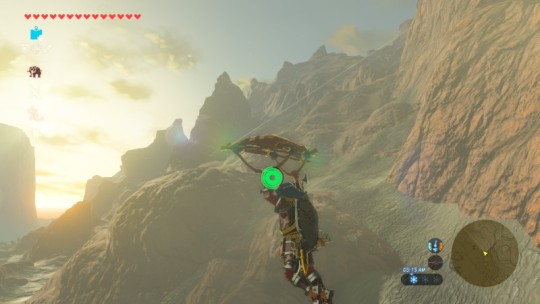
One of the few mandatory items in the game is the paraglider. You have to get it before you can leave the Great Plateau (and even speedrunners trying their best to find a sequence break seem to have confirmed that the game is coded to ensure the paraglider is a must). The paraglider gives you the ability to glide from high places, covering long distances. And, since you're in the air, rough terrain is a non-issue, while it provides constant barriers to horseback travel. It also gives you the opportunity to look at the environment from a high viewpoint. And you can go into Matrix-bullet-time mode and shoot arrows while you're in the sky (you can do this after jumping off your horse too, but I digress). You can also shield surf off a ledge, pull out your paraglider with your shield still strapped to your feet and continue shield surfing when you find a place to land. Basically, the paraglider is objectively superior to horses in every way. Especially after you finish Vah Medoh and gain the ability to create updrafts where you stand. Or, hell, just when you learn that you can create updrafts by setting grass on fire.
Oh yeah, shield-surfing. God damn, that's cool. When I first learned to do it, I immediately tried to using the bow, and you can! I'm Legolas, bitches!
And that small moment I had nicely sums up one of Breath of the Wild's greatest strengths: Not only how much it encourages experimentation, but how rewarding it is. Nearly every time you have the thought “I wonder if I can do this,” the answer is “Yes.”
The game tells you about shield-surfing, but it doesn't tell you you can use weapons, jump and paraglide mid-surf. But you totally can. And it's awesome.
I've seen people cite this as why Breath of the Wild is the perfect game for somebody who doesn't play video games, and I totally agree. Those of us who grew up with video games are accustomed to so many limitations existing because “that's just how video games work”. We're used to unnaturally shaped “natural” environments dictating the difference between playable area and background decoration. We're used to there being a one-and-only path through the story and awkward prevention from us going to certain areas before the game tells us we can; no matter how much we would already like to go there. We're used to friendly NPCs having no reaction to us drawing our weapon and swinging it around like a madman and setting the landscape on fire.
A person with none of these presuppositions will be more likely to try things that a seasoned gamer might instinctively not bother to try under the assumption that nothing will come out of it because of those ingrained conventions. But Breath of the Wild so readily and so casually tosses those conventions out the window that just about anything and everything is on the table.
Almost* none of the terrain is insurmountable. If you can touch a mountainside, you can climb it. There are paths carved throughout the land, but you needn't follow them. Hell, my first time in Goron City, I came in backwards from the way the game is set up to guide you into it. Incidentally, the Goron at the clothing shop has a really funny reaction to you wearing non-fireproof gear.
Breath of the Wild is very light and very modular with its story, in a way that never impedes the player's curiosity or desires. There is no one-and-only order and if you unwittingly stumble into some of the plot on your way to a point of interest, nothing's stopping you from leaving that plot until you feel like coming back to it. I started working through the Zora's Domain section of the main story only to drop it entirely midway through for several hours while I attempted to make it to every tower on the map. As I put it to my roommate, who kept commenting on my total inability to focus on one goal, “this game is distraction porn.”
And NPC's will, in fact, react with serious concern to your careless disregard with their well-being. One NPC will even show concern for your well-being should he see you standing on the edge of the bridge he patrols.
Though I should be fair and note that, while this is new to Zelda, it's not exactly new to video games. Skyrim's villagers will happily slaughter you with battle axes if you so much as graze one of their oh-so-precious chickens.
*There is a visible mountain that wraps around the north side and northwest corner of the game map. Unfortunately, there is an invisible wall that prevents you from reaching it. The game's world is enormous, but it definitely isn't endless.
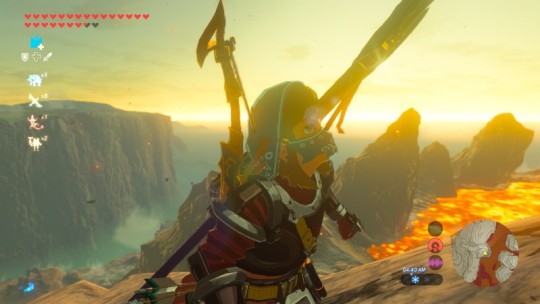
The aforementioned light and modular story may be the best thing about Breath of the Wild, especially when compared with the likes of Skyward Sword. Now, I like Skyward Sword. I don't love it, and I have a lot of problems with it, but I don't hate it. I do, however, hate the way Skyward Sword handles story. Skyward Sword has probably the most detailed plot of any Zelda game and, while that statement alone sounds like a compliment, it's totally to the detriment of the player experience. You have no freedom in Skyward Sword. Everything has to happen this way in this order. We're telling this story, not your way of approaching it.
At that point, can you even call it an adventure game?
This is one reason I really don't care much about story in video games. The most inventive, wonderful story ever crafted by a human mind can be included in a video game, but if the game isn't fun...it's a terrible game. And the particularity of Skyward Sword's story directly, negatively impacts how much fun the game has to offer.*
*While replaying the opening couple hours of Skyward Sword which are 90% dialogue, I turned to my roommate and assured him, “Don't worry, I swear there's a game in here somewhere.”
Breath of the Wild is completely the opposite. The game really has very little story, and what story there is isn't especially deep. And it's a huge benefit to the player experience. The story isn't fixed for you ahead of time, and you aren't shoved along the only path Nintendo wants you to see. The story is almost entirely up to you. You're going on an adventure.
As I played the game and considered this, I realized this is the first Zelda game since the first Zelda game to really do that. A Link to the Past is fairly open in the sense that you can explore quite a bit of the world right away (after the intro section) but even it had a laid out, self-dictated path of progression. And each consecutive game seemed to keep guiding the player just a little more; Link's Awakening had recurring messages dropping mind-numbingly obvious hints. Ocarina of Time and Majora's Mask introduced the dreaded player-companion concept. The Oracle games (which I adore, by the way) have the Maku Trees simply telling you where to go next every time you finish a dungeon, etc.
Some of the games handled these obnoxious concepts well, such as Twilight Princess disguising the handholding player-companion with a genuinely interesting and endearing character, while others...didn't (...Fi...). But they continued to employ these concepts, eventually cementing them as unfortunate staples of the series; staples that seem counterintuitive to the original game's concept of being lost in a vast world that you're free to explore and learn about entirely of your own volition.
I have several gripes with the core control mechanics of the original Zelda, a story for another day, but the game is solid conceptually. Breath of the Wild feels like the full realization of that original concept.

Playing through the game while my roommate watched intently, a number of times I would turn to him and say, “that's very Zelda 1.” A big part of that comes down to the sort of post-apocalyptic world the game takes place in. So much of the area is barren, but with a lot of dilapidated and curious structures that imply a larger civilization in the century past. And that's...“very Zelda 1.”
You need a certain number of hearts before you can successfully pull the Master Sword from its pedestal. This is also “very Zelda 1”. The White Sword and Magical Sword in the original game both had similar prerequisites.
The one moment I had that I think best exemplifies the “Zelda 1-ness” of the game is my first visit to Gerudo Desert. On my way to Gerudo Town (scaling the mountains because the ground-level path is for chumps), I happened to spy a circle of enormous statues off to the side. True to form, I ditched the forward path to investigate these statues. Upon observing them, I realized there was a puzzle here and one I could solve. So I did and was rewarded with one of the Shrines.
The game didn't lead me there. None of the NPC's told me about those statues (though somebody I would meet later in Gerudo Town does mention them, giving you a sidequest, which in my case was immediately marked as “Complete”). These statues aren't part of the main story at all. I saw something interesting, and I decided to investigate. My choice as a result of my curiosity was the sole driving force behind my actions, and that sums up how the original Zelda worked. The player's curiosity pushed them, and by extension the game, forward. Breath of the Wild works the same way.
It was in this moment that it really sunk into me how different Breath of the Wild is from what the Zelda series had largely become, but how it also does the best job of capturing the spirit of the series' original title.
Any other Zelda in recent memory would treat a huge landmark like these statues with so much less player-freedom. You might not even see them until the game decides it's time for you to interact with them. It wouldn't be a matter of “hey, there's something interesting over there. I'm gonna go check it out because I can and nothing's going to stop me,” it'd be “here these are now, because you played our story until you got to them, these are the next part of the plot, and no more game will happen until you're done with them.”
But the original Legend of Zelda wouldn't do that, and neither does Breath of the Wild.
Not only is your curiosity a driving force for the game, and one that the game incites and encourages, it's always rewarding. Pretty much every slightly interesting piece of terrain has something to offer you, even if it's just a Korok seed. Every new nook and cranny you explore, you'll be rewarded for doing so.
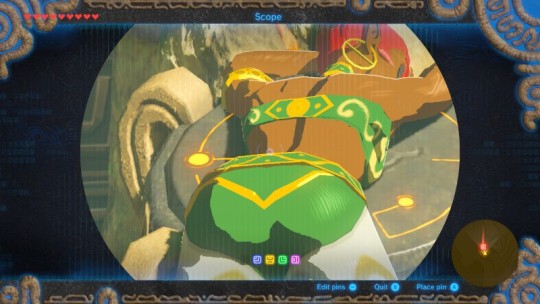
Every nook and cranny.
Anyway, now that the gush-fest is more or less out of the way, let's come back to some things I don't really like. First, let's talk about the Shrines. The Shrines themselves are actually a great concept. Over a hundred mini-dungeons that can give you whatever puzzles the developers can think up, unhindered by any thematic obligation that the more traditional Zelda formula would force upon them.
If only that could be said for all of the Shrines. I find the “Blessing” Shrines to be pretty lame; these Shrines have no puzzle or challenge to present to you. Most of the time, you find these Shrines after solving a puzzle or facing some challenge on the overworld. But a lot of those challenges aren't very satisfying, so it's a letdown to see that the Shrine won't titillate you where it's prerequisite failed to. But hey, at least those ones are trying.
Far worse are the “Test of Strength” Shrines. This is a concept I would've been fine with if maybe 1-3 of the Shrines, at most, were done in this manner. This is not the case. There are around 20 Shrines in which your only goal is to beat up a single robot before the whole affair is done with. Meh.
I was always very excited when I entered a Shrine and saw that it was neither of these.
Now, let's talk about the final boss. So the Calamity Ganon fight is pretty cool. It feels a lot like a Dark Souls boss in many ways. Ganon's quite large, has a significant array of moves, uses the arena to his advantage, and has a second phase in which your timing starts to matter a lot more. Good stuff.
Unfortunately, after Calamity Ganon is done with, he transforms into the much larger Dark Beast Ganon; the “Hatred and Malice Incarnate,” as the game calls him; and we find ourselves facing him out in Hyrule field. I was cautiously optimistic when I first saw this. A giant monster battle out in the overworld? OK, this might be super cool.
But...then I was given the Light Bow out of nowhere and Zelda’s disembodied voice told me to “shoot the glowing points” and at that instant, I knew the battle was going to be lame. It's presented cool, but it's just not very challenging, interesting, or fun.
For all the guff I gave Skyward Sword earlier, this is one area I give that story-plagued game the edge. I really like the final fight with Demise in Skyward Sword. It's also not especially challenging, but at least I get to catch and throw lightning with my sword! It's also a fight that feels like a natural extension of the games most prominent mechanics up until then, with the motion-controlled swordplay being the focus.
Breath of the Wild instead shoves you on horseback (“oh yeah, there are horses in this game”) and gives you a new tool last-second, awkwardly disconnecting the final confrontation from the entire game up until that point.
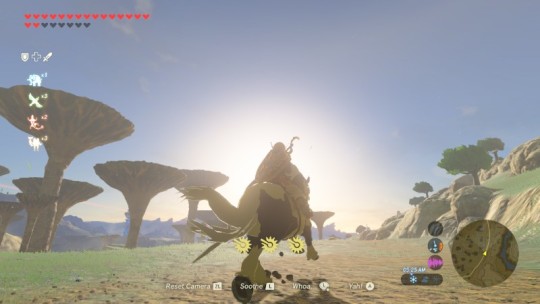
So the game isn't perfect. But it's so, so, so close. Even minor things about the game absolutely enthralled me. The temperature system, for instance, is really thorough. Like, yeah, equip the right clothes for the right weather conditions. But what about when even that doesn't help? Well, you can follow the advice of the NPC's and use elixirs, or you can equip elemental weapons. This is another very cool mechanic the game doesn't tell you. If you're in the hottest areas of Gerudo Desert, where the Gerudo clothing doesn't cut it, you can equip a frostblade, and that will also affect your tolerance for the heat. It's so impressive how even the tiniest details like this weren't overlooked.
Not to mention the very Minecraft-esque mechanic that killing wildlife with fire weapons will yield cooked meat. Breath of the Wild takes that one step further than it's inspiration, giving you “icy” meat if you kill them with ice weapons.
The game also has countless references to other Zelda titles, so if you're a longtime fan of the franchise, those are a lot of fun to see. Areas ripped straight from Skyward Sword, Twilight Princess and Ocarina of Time all appear; albeit very ravaged by time and war. There are locations named after some of the most obscure characters in the franchise. Even the music, what little there is, has some nostalgic melodies you wouldn't necessarily expect.
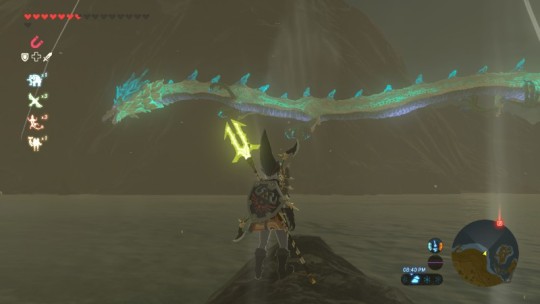
Anyway, this ended up about five times as long as I expected, but there was just so much I wanted to say. I really do think this game, in addition to being so well-received, will ultimately prove to be an important title to video games as a whole. Like Ocarina of Time before it, and the original Legend of Zelda before that, Breath of the Wild may have significantly altered the playing field forever.
#zelda#legend of zelda#the legend of zelda#breath of the wild#the legend of zelda breath of the wild#nintendo#video games
10 notes
·
View notes